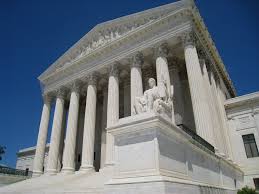High court front-runner hailed by right, feared by left
But she wouldn't be the only justice with little prior experience as a judge: Elena Kagan had none when President Barack Obama nominated her in 2009. Barrett mentioned Kagan when asked in a White House questionnaire in 2017 about which justices she admired most, saying Kagan brought to the bench “the knowledge and skill she acquired as an academic to the practical resolution of disputes.” When Barrett's name first arose in 2018 as a possible Trump pick, even some conservatives worried her sparse judicial record made it too hard to predict how she might rule.

- Country:
- United States
A front-runner to fill the Supreme Court seat vacated by the death of Justice Ruth Bader Ginsburg is a federal appellate judge who has established herself as a reliable conservative on hot-button legal issues from abortion to gun control. Amy Coney Barrett, a devout Catholic, is hailed by religious conservatives and others on the right as an ideological heir to conservative icon Antonin Scalia, the late Supreme Court justice for whom she clerked.
Liberals say Barrett's legal views are too heavily influenced by her religious beliefs and fear her ascent to the nation's highest court could lead to a scaling back of hard-fought abortion rights. She also would replace the justice who is best-known for fighting for women's rights and equality. President Donald Trump has said he'll nominate a woman and Barrett is thought to be at the top of his list of favourites. The Chicago-based 7th US Circuit Court of Appeals judge was considered a finalist in 2018 for Trump's second nomination to the high court, which eventually went to Brett Kavanaugh after Justice Anthony Kennedy retired. Barrett's selection now could help Trump energise his base weeks before Election Day.
At just 48, Barrett would be the youngest justice and her tenure could last for decades. She's made her mark in law primarily as an academic at the University of Notre Dame, where she began teaching at age 30. She first donned judges' robes in 2017 after Trump nominated her to the 7th Circuit. But she wouldn't be the only justice with little prior experience as a judge: Elena Kagan had none when President Barack Obama nominated her in 2009.
Barrett mentioned Kagan when asked in a White House questionnaire in 2017 about which justices she admired most, saying Kagan brought to the bench “the knowledge and skill she acquired as an academic to the practical resolution of disputes.” When Barrett's name first arose in 2018 as a possible Trump pick, even some conservatives worried her sparse judicial record made it too hard to predict how she might rule. Nearly three years on, her judicial record now includes the authorship of around 100 opinions and several telling dissents in which Barrett displayed her clear and consistent conservative bent. She has long expressed sympathy with a mode of interpreting the Constitution, called originalism, in which justices try to decipher original meanings of texts in assessing if someone's rights have been violated. Many liberals oppose that strict approach, saying it is too rigid and doesn't allow the Constitution to change with the times.
Barrett's fondness for original texts was on display in a 2019 dissent in a gun-rights case in which she argued a person convicted of a nonviolent felony shouldn't be automatically barred from owning a gun. All but a few pages of her 37-page dissent were devoted to the history of gun rules for convicted criminals in the 18th and 19th centuries. And, all indications are that Barrett is staunchly opposed to abortion, though she has often side-stepped answering questions about the topic.
In the 2017 White House questionnaire, Barrett was asked if it was her view that abortion was always immoral. She didn't answer the question directly but said: “If I am confirmed (to the 7th Circuit), my views on this or any other question will have no bearing on the discharge of my duties as a judge.” In a 2013 Texas Law Review article, Barrett listed fewer than 10 cases she said are widely considered “super-precedents,” ones that no justice would dare reverse even if they believed they were wrongly decided.
(This story has not been edited by Devdiscourse staff and is auto-generated from a syndicated feed.)
ALSO READ
Joe Biden hosts Japan's PM at White House, in strong message to China over policies in Indo-Pacific
House Speaker Mike Johnson is working with the White House to push forward Ukraine aid efforts
US has told Iran it was not involved in Damascus attack, White House says
US has told Iran it was not involved in Damascus attack, White House says
Muslim leaders express frustration with White House outreach on Gaza conflict










